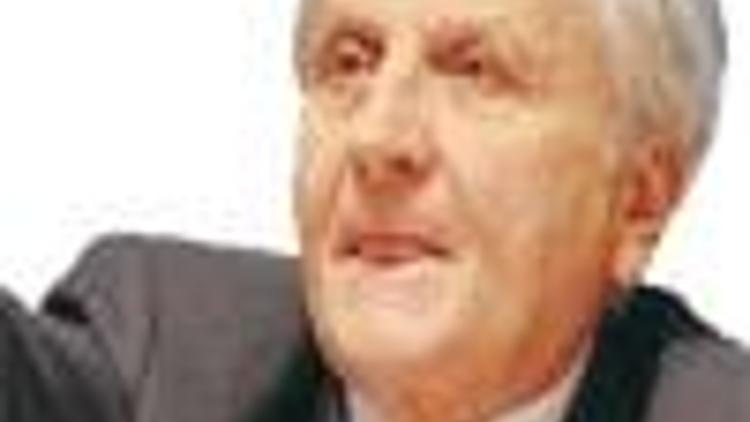ECB chief Trichet under pressure
Güncelleme Tarihi:

Bloomberg
Oluşturulma Tarihi: Aralık 06, 2008 00:00
LONDON - European Central Bank President Jean-Claude Trichet is under pressure to outline a plan to revive the euro region’s economy should he be "trapped" into pushing interest rates closer to zero.
Even as Trichet delivers the biggest rate cut in the ECB’s history, he has not spelled out a specific approach should conventional tools fail to head off deflation. While he Thursday acknowledged for the first time that unorthodox measures are an option, economists say the lack of detail is a concern.
"The ECB should lean against the wind as deflation talk inevitably becomes widespread," said Marco Annunziata, chief economist at Unicredit MIB in London. "This would be best achieved by taking the deflation risk seriously, and outlining a contingency plan against it."
The absence of a public strategy leaves Trichet lagging Federal Reserve Chairman Ben S. Bernanke, who said Dec. 1 he may turn to alternative policies such as buying Treasuries after cutting the benchmark rate to 1 percent. Bank of England Governor Mervyn King conceded last month that he may have to coordinate policies with the government if U.K. rates fall to zero.
Trichet instead stresses the need to hold on to as much ammunition as possible before discussing other approaches. At 2.5 percent, the ECB’s main rate is still the highest in the Group of Seven nations even after Thursday’s 75 basis point cut.
No road map
"We have to beware of being trapped at nominal levels that would be much too low," Trichet said. He dismissed the likelihood of deflation and said only that buying assets was a possibility for the ECB.
"We are looking at the situation as cautiously and attentively as possible," Trichet said. "At this stage I have no further indications to give."
That’s a concern to economists at Royal Bank of Scotland and Goldman Sachs who fret that without a road map for recovery, banks may continue to limit loans to consumers and companies. Seventeen months into the crisis, the interbank lending market remains strained, restricting the flow of credit through the economy.
"Transparency and predictability are needed from the ECB," said Erik Nielsen, chief European economist at Goldman Sachs in London. "We need to know as much as possible about what could be done even if it’s not likely." One step the ECB could consider is buying commercial paper and then government debt, said Royal Bank of Scotland economist Jacques Cailloux. It could even begin buying private assets before rates approach zero, given that monetary policy is less effective when the system is frozen, he said.
"The ECB should lean against the wind as deflation talk inevitably becomes widespread," said Marco Annunziata, chief economist at Unicredit MIB in London. "This would be best achieved by taking the deflation risk seriously, and outlining a contingency plan against it."
The absence of a public strategy leaves Trichet lagging Federal Reserve Chairman Ben S. Bernanke, who said Dec. 1 he may turn to alternative policies such as buying Treasuries after cutting the benchmark rate to 1 percent. Bank of England Governor Mervyn King conceded last month that he may have to coordinate policies with the government if U.K. rates fall to zero.
Trichet instead stresses the need to hold on to as much ammunition as possible before discussing other approaches. At 2.5 percent, the ECB’s main rate is still the highest in the Group of Seven nations even after Thursday’s 75 basis point cut.
No road map
"We have to beware of being trapped at nominal levels that would be much too low," Trichet said. He dismissed the likelihood of deflation and said only that buying assets was a possibility for the ECB.
"We are looking at the situation as cautiously and attentively as possible," Trichet said. "At this stage I have no further indications to give."
That’s a concern to economists at Royal Bank of Scotland and Goldman Sachs who fret that without a road map for recovery, banks may continue to limit loans to consumers and companies. Seventeen months into the crisis, the interbank lending market remains strained, restricting the flow of credit through the economy.
"Transparency and predictability are needed from the ECB," said Erik Nielsen, chief European economist at Goldman Sachs in London. "We need to know as much as possible about what could be done even if it’s not likely." One step the ECB could consider is buying commercial paper and then government debt, said Royal Bank of Scotland economist Jacques Cailloux. It could even begin buying private assets before rates approach zero, given that monetary policy is less effective when the system is frozen, he said.

